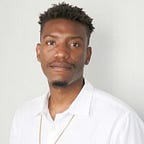My Brothers, It’s Time to Heal
The other day I saw a powerful interview on the Breakfast Club. Jason Wilson was a guest on the show. He spoke of the power of healing and the need for men to be comprehensive human beings. He opened up to the audience about his past trauma and how he has been working to overcome it. He spoke about the meaning of what a man is and said there is no definition of what a man should be and that the current ones are limiting our potential. He encouraged us to give our fellow brother positive affirmations instead of tearing each other down. Lastly, he spoke about his relationship with his father, children, and partner in a way that was so moving, that I decided to take it upon myself to do some intentional healing in my life.
I decided to begin by calling my brother. I had always wanted my relationship with him to be better and I finally decided to do something about it. Prior to our conversation I sent him the interview and we unpacked it together. We started by talking about our relationship with our father. I had always thought that my brother’s relationship with my father was better than mine, but to my surprise, my brother was also facing the same struggles.
My father has always been a very stoic man. Once in a while when you talk to him you can get him to express a little emotion. My father provided me with everything I could ever ask for in life except for ample emotional support. That was always a struggle for him and I could never express that this was something I needed to grow into the person I wanted to become. I feel like the reason he struggled to do this is because of our culture and what it means to be a “man.” In our culture, a man is a leader of the family and does not show his emotion for fear of it being a sign of weakness. A man is a “provider”, one that makes sure that the family has what it needs, which can oftentimes exclude ample emotional support. These men care but often do not express love, an important distinction made by author bell hooks in the book All About Love. You will run across many men like my father in Nigerian and African culture as a whole. Also, sadly, this may just be the standard of men in today’s society. As my brother and I continued to talk, we also spoke of our admiration for our father, but said that we would not fall into the cultural tradition of being an emotionally unavailable man. After talking about our father we focused on our relationship.
My brother has always looked up to me since we were young and I never knew how to take it. I recall when we were young I always used to tell my brother to stop copying me and be his own person. Little did I know his desire to be like me was a sign of adoration. I started our conversation about our relationship by telling my brother I was sorry for not always being there for him and bullying him when we were younger. I told him fighting with him was my way of expressing my love to him even though I know better now. The interesting thing was that my brother saw my fighting with him as a sign of love as well, so much so that when I stopped doing it he felt as if I did not care about him anymore. When I got to high school I stopped fighting with my brother and we stopped playing video games together, one of the activities that we shared almost daily. I had to tell my brother that I was starting to grow up. I saw fighting with my brother as unnecessary and I started to keep my distance because I did not want my brother to be like me, I wanted him to be better. At the time, I was doing some things that I did not want him to learn from me so I kept him at a distance, which I see now as a mistake. I told my brother again that I was sorry and that I wanted our relationship to be better. I wanted it to be based on love not anger or fighting, because love based in conflict is toxic. At that time we both started to cry. We said we loved each other and would continue to share our love for each other verbally and through actions.
Authors such as bell hooks often talk about the importance of healing for women in their books. We as men need to learn from the examples of powerful women such as bell hooks and talk through our traumas as men molded by the patriarchy. Leaders like Jason Wilson have shown us the power of being a comprehensive man and the healing that comes with it. We as men need to be more vulnerable in order to heal. We need to stop seeing vulnerability as a weakness and more as a strength. We need to find power in love and not anger and control. We need to give affirmations instead of tearing others down. We need to realize that not everything is a competition. The more we heal as men, the better we can be for our partners, family, and other loved ones. We need to see love, healing, and vulnerability as goals not obstacles. I encourage anyone reading this to reach out to someone they have hurt and start that process of healing. You will be better for it.
